Conexiones Ecuador
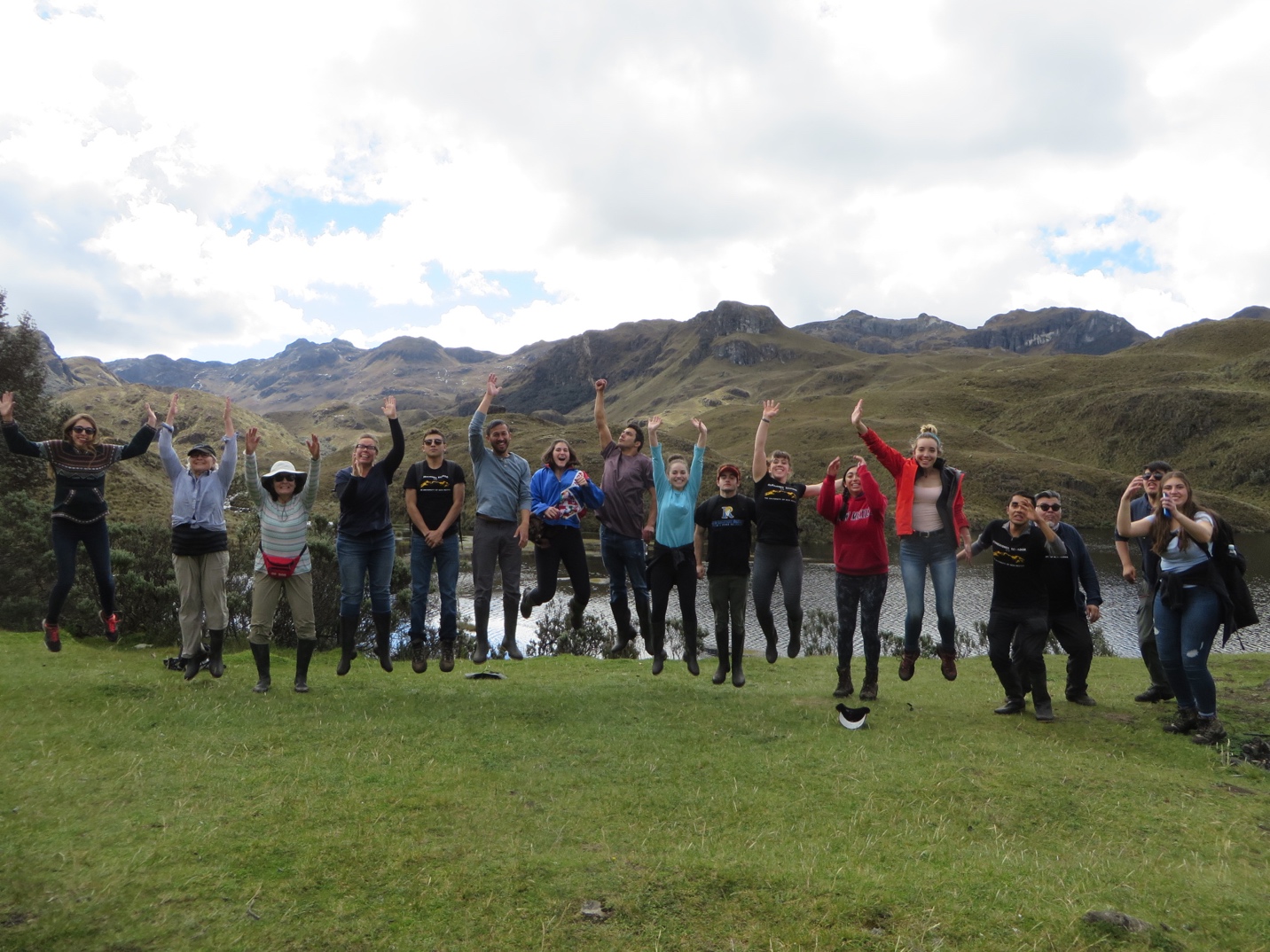
Conexiones Ecuador is a summer study abroad in beautiful Cuenca, Ecuador. Combining language and cultural studies, this month long program offer students home stays with Ecuadorian families, Spanish language study at the Universidad de Cuenca, and excursions and study around the theme of Soundscapes of Ecuador. Nestled in the Andes Mountains, Cuenca is a World Heritage Site and melting pot of indigenous, Spanish, and international cultures.
For questions or more information, please email Dr. Santiago Vaquera-Vásquez at svaquera@unm.edu or Dr. Damián Vergara Wilson at damianvw@unm.edu.
APPLY HERE: https://forms.gle/9yLAqjjkmvZJLx8R6
Conexiones Program History
Conexiones is an intensive Spanish language and culture study abroad program. Conexiones began in 1985 and has since become a premier language study program at the University of New Mexico.
Program Philosophy
Conexiones immerses students in the living, breathing reality of Spanish-speaking society. The main theme of the program is the connections between the U.S. Southwest and the visiting country, with emphasis in the local regions with strong historical and cultural connections to New Mexico.
The key to the Conexiones approach is integration. Intellectual, linguistic, and personal growth are seen as a unified process. The program is designed to expedite that process.
The support groups are a unique feature of Conexiones. These groups emphasize personal growth and help students to understand culture shock as a positive (if sometimes uncomfortable) growth experience.
Requirements
Applicants must have a minimum of 3.2 GPA. Students with a lower GPA may apply since all applications will be considered individually and exceptions may be made. Students with “Degree status” and “Non-degree status” can apply. Students must be able to enter a 200-level Spanish class, minimum. Once students are accepted to the program, they will be required to complete preparation materials, relevant to the country of excursion.
Conexiones-Ecuador offers you the opportunity to study Spanish or Quichua in the Andean city of Cuenca, a World Heritage Site boasting pre-colonial ruins and Spanish colonial architecture. Tucked between four rushing rivers, Cuenca’s lush environment and cultural vibrancy welcomes visitors with many opportunities to explore the Andes mountains and Ecuadorian culture. Conexiones students live with host families for an immersion experience, attend classes at the Universidad de Cuenca, and participate in field trips and other excursions around the city and the surrounding region. A unique element of Conexiones is the combination of immersion and support. Conexiones offers independence for students to explore their host community and pursue their own interests but program faculty on site help students navigate and make the most of their experience. Culture shock support groups help students reflect on their experiences and recognize culture shock as a positive, if sometimes uncomfortable, opportunity for growth.
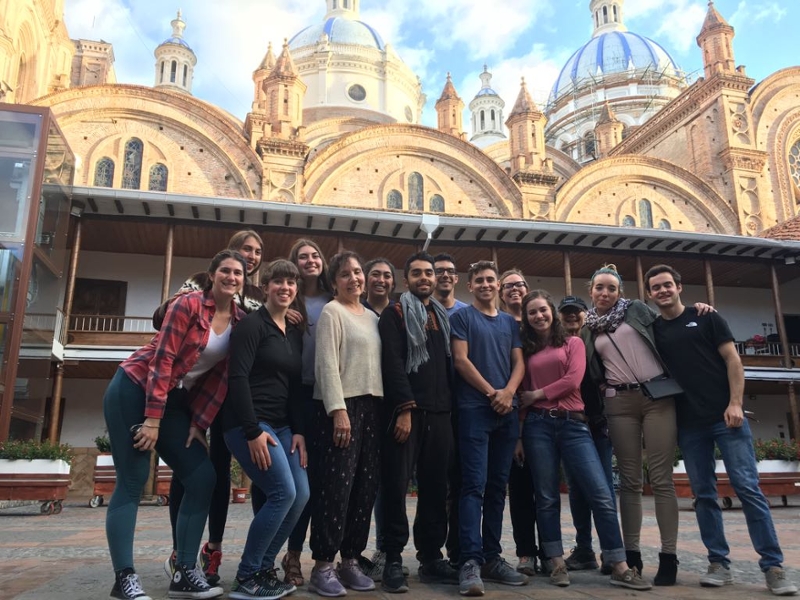
Ecuador provides an extraordinary opportunity to learn about food, sovereignty, and development. With 13 indigenous languages recognized by the Ecuadorian State, indigenous culture remains a vibrant and important element of Ecuadorian culture. But, its indigenous population is Ecuador’s most vulnerable and impoverished segment of society, and indigenous groups struggle for sovereignty, representation, and development. This class examines these dynamics through the lens of food, seeking to understand how food cultures and agricultural production contribute to indigenous cultural survival and livelihoods. This class explores the food systems of Ecuador, from the large-scale plantations that makes Ecuador one of the world’s leading suppliers of bananas to the micro level “minifundios” on which rural folks make their modest livings. We’ll explore Ecuadorian ideas for building a better, more sustainable, and socially just food system.
Requirements
All UNM students with a GPA of at least 3.0 are invited to participate in Conexiones. Students should have taken at least one year of Spanish language classes, or otherwise be able to test into a 200-level Spanish course. Students must be mature and responsible, able to represent UNM and New Mexico well in a foreign country where the rules and expectations are often very different from home.
How to Apply
APPLY HERE: https://forms.gle/9yLAqjjkmvZJLx8R6
If you are interested or have questions, please email Dr. Santiago Vaquera-Vásquez or Dr. Damián Vergara Wilson.
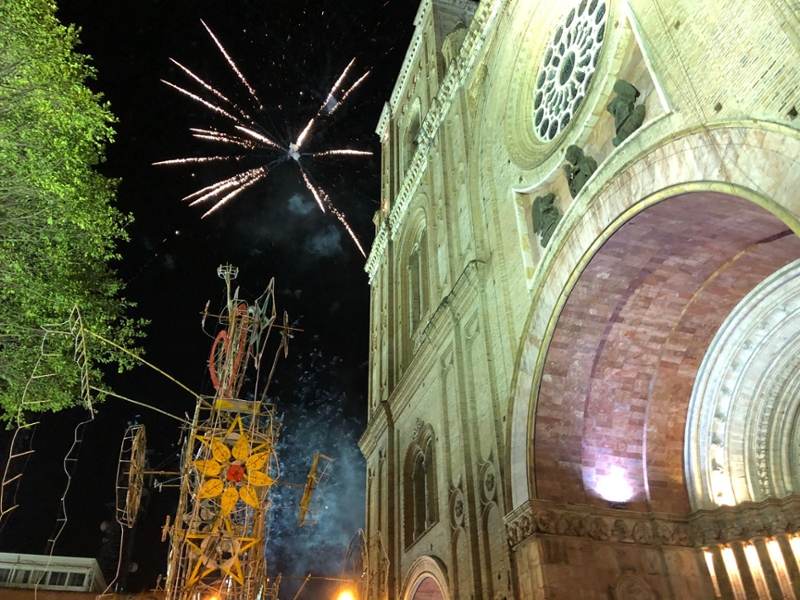
Tickets/Airfare
Students travel to Spain at their own expense. Due to the rising costs of airline travel and to the fact that group discounts have been reduced, Conexiones is now encouraging students to find their own best airfare. We will provide recommendations, but students are responsible for making their own travel arrangements. We will also try to facilitate students traveling together. In order to ensure that you have made your reservation in a timely way, we will require that you provide a copy of your ticket or e-ticket by the date in the spring that will be communicated to you.
Room and Board
Part of the immersive experience in Conexiones is living with a host family. We work with our partners at the Universidad de Extremadura to house students with local families. The cost of room and board is included in the program fees.
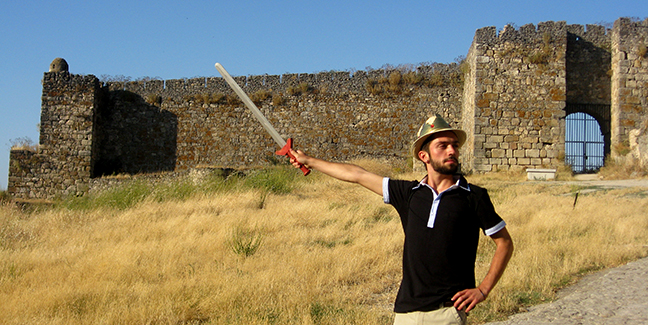
A passport is required for traveling to Spain. Applicants who are U.S. citizens do not need a visa for a six-week stay. We encourage students to use the Passport Office on campus. For other ways to apply for a passport visit the U.S. Department of State's website.
The Study Abroad office offers a GEO passport scholarship which supports the cost of students obtaining a passport. See if you are eligible here.
All students are required to have accident and medical insurance coverage for the duration of the program. The Global Education Office at UNM has information regarding insurance.
The program directors will also provide information on insurance.
Scholarships
Study abroad is a transformative experience for students and the honors college wants to help support as many students travel abroad as possible. Here are resources to help students secure scholarships for study abroad opportunities: https://studyabroad.unm.edu/getting-started/funding-and-scholarships.html

Program Fee
Projected Program Fee - $2,400*
*Depending on enrollment.
This fee includes all room and board during the program, travel costs while in Ecuador, faculty support, and the cost of Spanish classes at the Universidad de Cuenca. Students separately cover the cost of summer tuition, their flight to Ecuador, and extra spending money while in country.
Summer Tuition
UNM tuition rates for summer 2026 have not been released yet, but click here for the summer tuition for 2025. Summer tuition can be covered by Pell Grants, which usually covers the full amount.
Scholarships and Financial Aid
Honors Travel Scholarship: TBA
Benjamin A. Gilman International Scholarship: a grant program offered by the US Department of State, open to US citizen undergraduate students who receive Federal Pell Grant funding. For more information, visit www.gilmanscholarship.org. The grant runs in two cycles, with a Cycle 1 Deadline in the fall and a Cycle II deadline in the spring.
Study abroad is a transformative experience for students and the honors college wants to help support as many students travel abroad as possible. Here are resources to help students secure scholarships for study abroad opportunities: https://studyabroad.unm.edu/getting-started/funding-and-scholarships.html

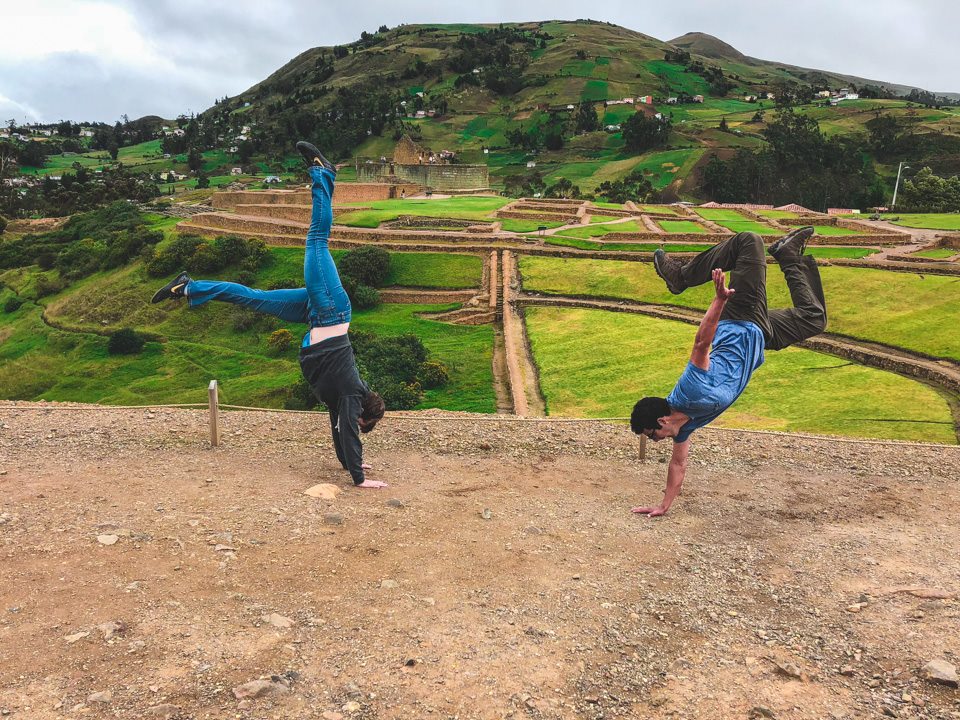
Air Travel
Students make their own travel arrangements to Quito, Ecuador, at their own expense. Faculty will recommend flights to facilitate traveling together as a group, but students can make whichever arrangements best suits their needs. Students should plan to arrive in Quito the evening or night of June 3. The cost of the flight to Ecuador depends on departure location, itinerary, and when the flight is booked. You can expect the flight to cost between $800 and $1600.
Passport and Insurance
A passport is required for travel to Ecuador. Students who are US citizens do not need a visa for stays less than 90 days. If you do not have a current US passport, get information about how to apply for one. UNM has a passport office in the Bookstore, which can help you with your application.
All students are required to have travel insurance for international accident and medical coverage for the duration of the program, and UNM works with an insurance company to provide this travel insurance to students. The Global Education Office provides information about how to acquire this insurance.
Travel Itinerary
- June 5, 2022: Arrive in Quito, Ecuador (flights from the US usually arrive in the late evening or night).
- June 6: Excursions around Quito. The group will stay in a hostel near the airport.
- June 7: Flight to Cuenca and introduction to host families, tour of Cuenca
- June 8-July 3: Homestays in Cuenca, coursework at Universidad de Cuenca, and excursions
- July 4: End of formal program.
Potential excursions within Ecuador (itinerary is being reorganized in light of the pandemic)
- El Cajas National Park
- Corpus Christi Feast celebrations at the Cuenca cathedral
- Banana, coffee and agave farms and plantations
- Jadan women’s agroecological collective
- Ingapirca Incan ruins
- Village of Saraguro for Inti Raymi (summer solstice) celebration
- Cooking class with La Warma Cocina y Taller
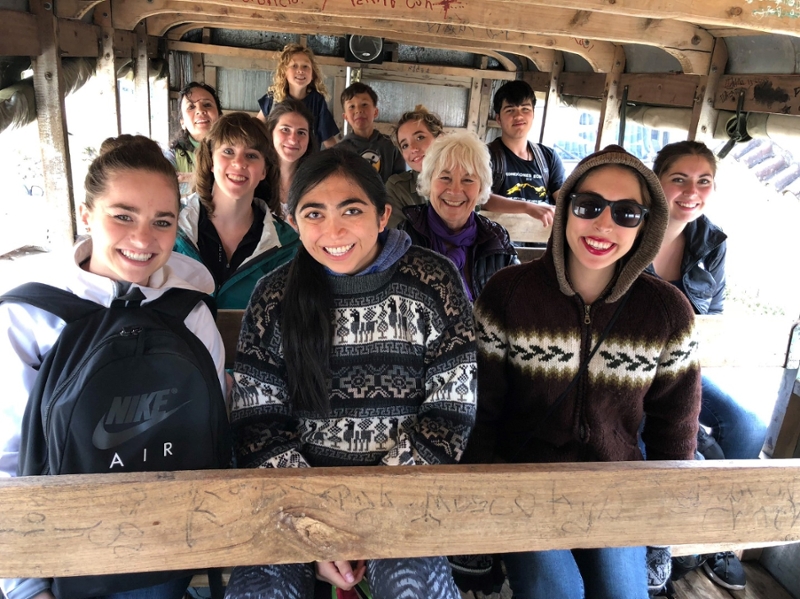
Students in Conexiones-Ecuador 2022 will receive 9 credits through the program:
- 3 credits of Spanish Language, taken with faculty at the Universidad de Cuenca (200, 300, or 400-level)
- 3 credits in SPAN 301
- 3 credits in UHON 301
Faculty
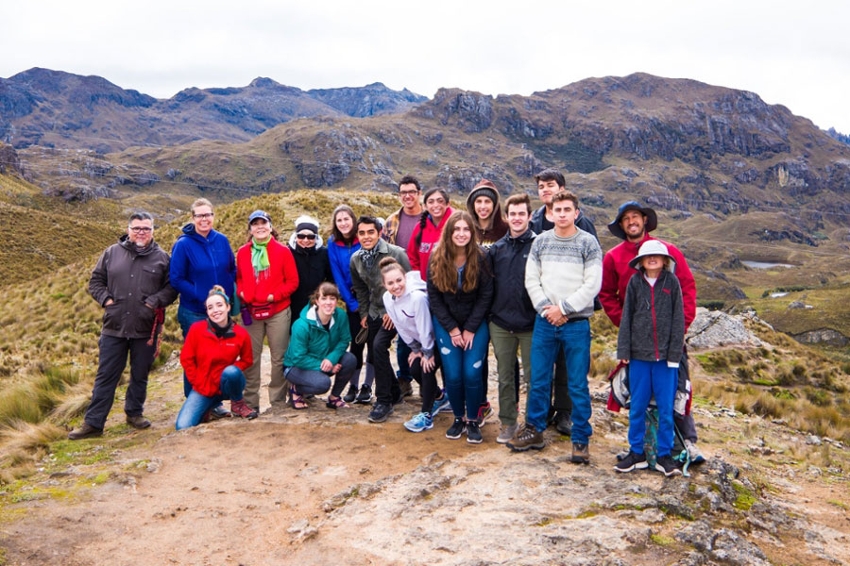
- Coming soon!!!
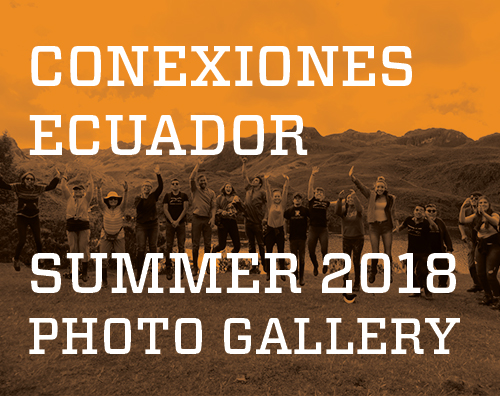
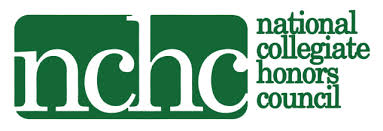


Social Media
For news, information, prizes and more fun stuff follow us on our social media!
Honors College Resources